The old saw is true, that you don’t tend to spend enough time and attention on the things and those closest to you.
How many of us, for example, have not gone to one or two of the museums in the town or city that we live in? how many of us have not recently told a friend how important they are to you?
The same is true, I would argue, with global affairs. We as a nation tend to spend more time and attention on countries in Asia, the Middle East, and Europe than we do on the countries closest to us in Central and South America. Having said that, sometimes we forget that the globe is round and that Santiago Chile, for example, is further from the US than Moscow.
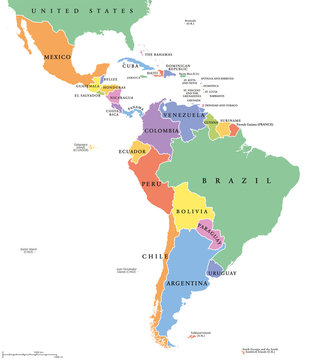
My recent trip to Panama and Colombia really brought this home to me.
To put it bluntly, we as a nation and as a people are not paying attention to our neighbors to the south. We are ignoring the countries that are in the same hemisphere that we are in.
I am afraid that to continue to do so will result in problems for us in the years to come. The current “border crisis” is just the tip of the iceberg in terms of future problems that we will have to deal with.
What is the problem and what are some potential solutions, you may ask.
Examples of the problems…
- What is happening in Venezuela is important to not only the people in that county but also to the people in Colombia, which is having the same problem we are experiencing with our southern border on their eastern border with Venezuela.
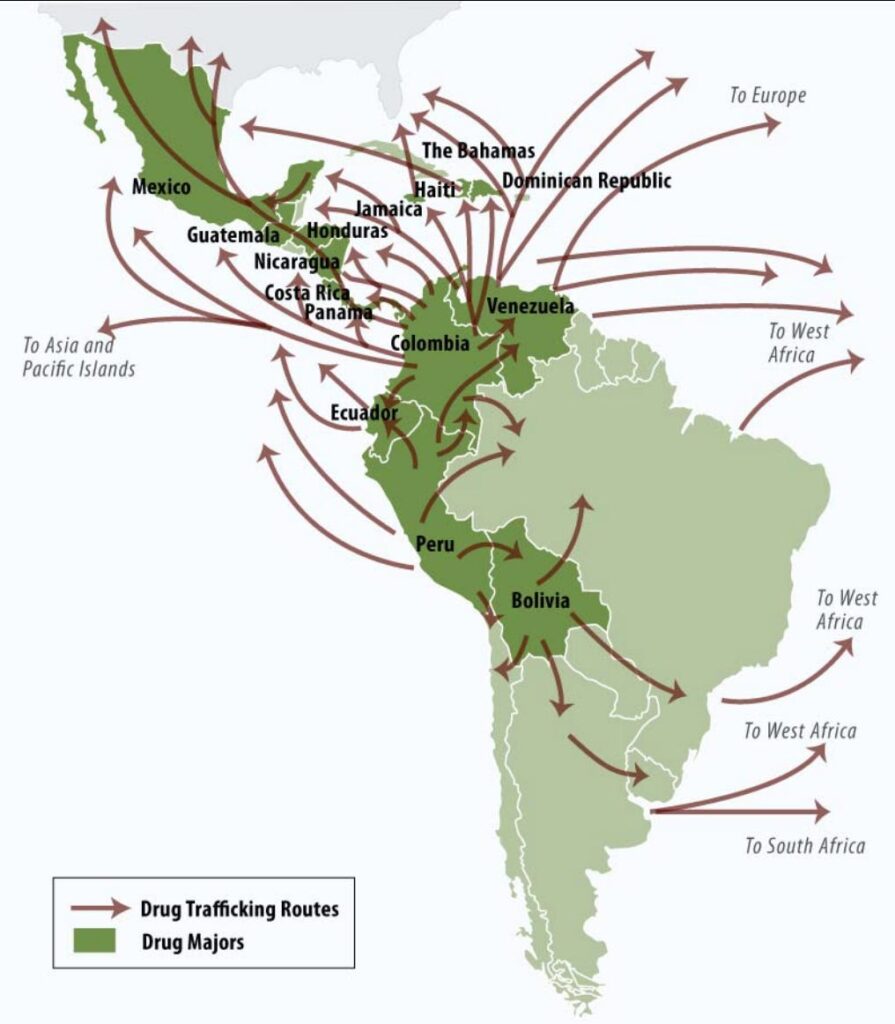
- Colombia has made strides with respect to the rule of law, but the reality is that the United States’s demand for drugs – which exceeds $10 billion a year — continues to fuel the drug cartels in Mexico, Ecuador, and Colombia. Colombia is still the largest exporter of cocaine in the world. The amount of land devoted to growing coca – the green leaves that are mulched and processed into cocaine – has grown 13% in the last year in Colombia.
- What is happening right now in Ecuador is very concerning. It is not safe right now. Not just for tourists but for the citizens of the country. Marital law has been declared as the government tries to regain control of not only its prisons but also its communities, fighting 22 criminal gangs and cartels who have an estimated 20,000 adherents.
- Argentina has been experiencing inflation of 160%, a national debt that is overwhelming and an economy that has left 40% of the population below the poverty line.
- Brazil, a country of 216 million people, is experiencing many of the challenges that the United States is facing right now including income distribution disparities and threats to their democracy.

- Machu Picchu in Peru has been temporarily disrupted as a popular destination for travelers because of a variety of protests and demonstrations. Peru is facing along with several other nations political instability, corruption and social conflict.
- The list goes on. Major issues are occurring in Nicaragua, El Salvador, Guatemala, Haiti, not to mention Cuba.
The reality is that we are all – residents and countries in the Western Hemisphere — experiencing in one form or another the same serious problems resulting from climate change, international shipping disruption, the impact of drug trafficking, unheard of migration from one country to another, the growing wealth gap between upper income groups and lower income groups, homelessness, the challenge of providing basic human services including sewer, potable water, garbage pick-up, transportation and congestion mitigation, education, health services, to name a few.

Where there is unrest, where there is uncertainty, people and countries are looking for friends, neighbors, countries that they can lean on a little, countries that they can rely on to provide some solace, guidance, assistance when needed, countries that they can count on when problems arise.
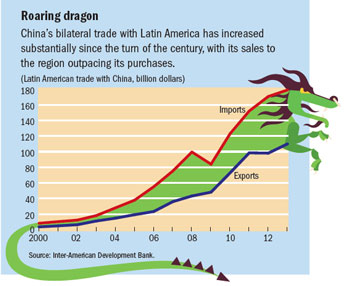
In my opinion, right now in Latin America the people and the countries are not sure that they can count on the United States of America to be there for them as they struggle with these issues. Given that reality, they are going to look elsewhere. They already have been looking to China. They are already deeply connected to China, which is overwhelmingly the largest trade partner in South America. Only in Colombia and Mexico do they sell more and buy more from the USA than China, but in both countries, China is gaining ground.
This should be deeply concerning to us in the United States, for a China foothold in the Western Hemisphere will dramatically reshape our security concerns.
What, given this somewhat bleak picture, are possible solutions.
Here are my two cents. One, our government should take some much bolder actions. Specifically, we should acknowledge our “family connections” with our brothers and sister states in the Western Hemisphere. Bottom line, the message that we need to send is that we are your brothers and sisters, we have the same problems, albeit less dramatic, that you have, and you can count on us to be there for you.
This at the government level could take several different forms. One, the Latin America Summit that currently occurs every three years needs to be held every year and needs to be taken seriously, bringing together the leaders of all the nations to work on common problems. Two, a special initiative to reduce drug use throughout the hemisphere, especially in the US, and thereby reduce demand for the drugs. Our track record on this is terrible. Three, a special Interpol like initiative to deal with cartels and criminal gangs that span individual country borders. Unfortunately, the Merida Initiative with Mexico in effect over the last 15 years has not resulted in significant progress. And four, a new IMF like infrastructure loan program that dramatically invests in health, transportation, ports, education, internet access, energy, and water. Sadly, IMF’s track record in Latin America is not great, and it will come with costs.
All four of these initiatives are not new, and in fact have been tried with very mixed results. However, I am suggesting a major revamping, retooling, and recommitment to each.
Two, and perhaps even more importantly, a citizen led, people to people initiative that will proceed regardless of any actions by governments. Something similar to what we have done at different times in the past. Whether it be Operation Crossroads Africa, or the Peace Corps, or the US Russian Goodwill Games. People to people exchanges. Where individuals get a chance to interact with each other, get to know each other. I would like to make exchanges commonplace.
Ideas that come to mind include:
- Sister cities, reinvigorating and expanding this program. Adding Sister Schools to the concept.
- Academic exchanges similar to Junior Year Abroad programs
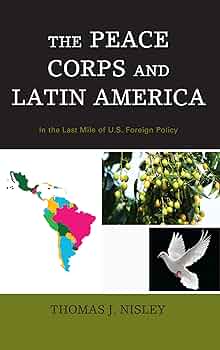
- Peace Corps like missions, where individuals donate a year or two to work in another country
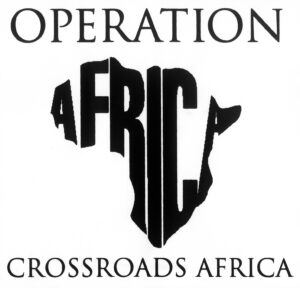
- Operation Crossroads Africa like summer efforts where high school and college age youth work with their counterparts in another country on projects

- Sports events like the Goodwill Games
- Small business cooperation and exchanges
- Guest worker exchange programs where Americans go to Latin countries, and vice versa, for a specific work assignments and for a specific period of time, and then return to the United States.
- Pen Pals for youth and children through our schools and non-profit organizations
I realize that this suggestion of a dramatic increase in people to people interactions does not deal directly with the issues of drug use, cartels or corruption. However, the one thing that I sensed in my recent revisit to Panama and Colombia is that there is some sort of special connection between our brothers and sisters in Latin America and Americans. I can’t define it. I can’t describe it. But, I can feel it. I don’t believe that there is any such connection with China.

If my instinct is correct, it offers an opportunity to develop and build relationships with the citizenry of our Latin America neighboring countries that will be crucial as we continue to deal with the challenges that the countries of the Western Hemisphere are facing.
Food for thought.
Neil – I have really been enjoying this Latin American series – so many useful insights based on your past and present experiences, and many pertinent and important observations. This entry has many critical suggestions in particular!
You should publish this more broadly. Great report.
Your views are truly altruistic, unfortunately you are dealing with different cultures that are in unsurmountable turmoil., consequently folks living in these countries are paying the cartels an extraordinary amount of money to solve their problems.by buying their way to the USA….many die on the treacherous, trek through high mountainous terrain with rivers to cross, snakes, dead bodies, feces all around them on route to the USA.. They have a vision of the USA as heaven, where all of their problems will be solved..When they get here they get a bed and food..which they haven’t had.
These latin countries are in such disruption.. you can’t have the peace corps go in they would be shot bang, bang..
Great ideas, but unfortunately there is zero will for this in the upper levels of government. With the wide open border and the welcoming arms of the current Administration, sanctuary this and sanctuary that etc. the reality is that within 20-50 years what is happening in the South American Countries will prove to be a microcosm of the North American macrocosm. Note the looting/swarming that is now rampant and soft on crime and border jumpers stance that is quickly expanding merely augur for an exponential increase of like behavior..
Definitely don’t give up! Great ideas and in the hands of people not bureaucracy things have a way! Happy almost birthday btw!